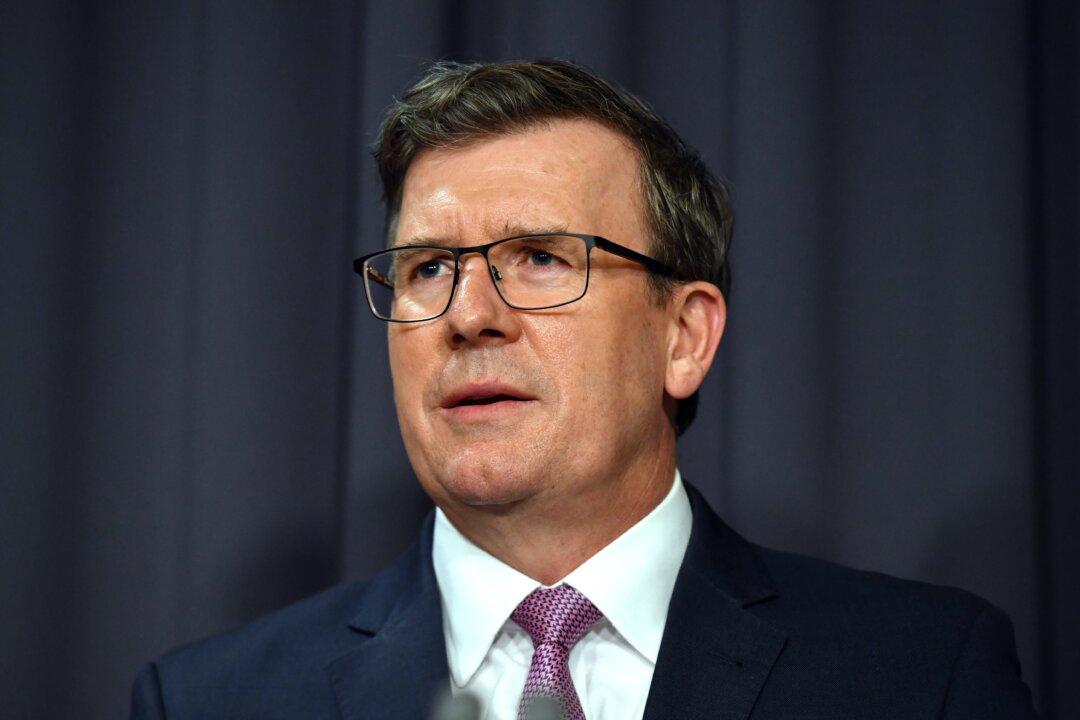
Minister for Education Alan Tudge at a press conference at Parliament House in Canberra, Australia, on Aug. 27, 2021. AAP Image/Mick Tsikas
Federal Education Minister Alan Tudge has said that Bruce Pascoe’s book Dark Emu should not be taught to children in schools.
Dark Emu, published in 2014, claims that Indigenous Australians were not just mere hunter-gatherers, but were actually sophisticated agriculturalists.





